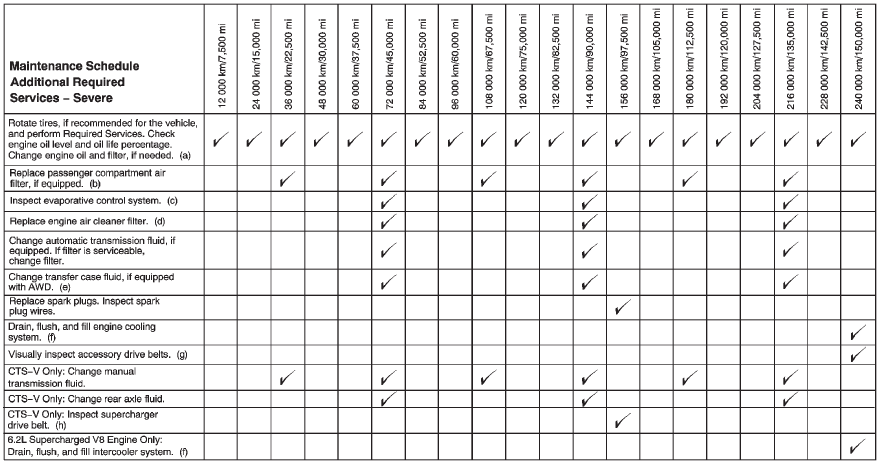Footnotes Ч Maintenance Schedule Additional Required Services Ч Normal
a) Vehicles with different size front and rear tires do not have tire rotation. See Tire Rotation.
b) Or every two years, whichever comes first. More frequent replacement may be needed if the vehicle is driven in areas with heavy traffic, areas with poor air quality, or areas with high dust levels.
Replacement may also be needed if there is a reduction in air flow, excessive window fogging, or odors.
c) Check all fuel and vapor lines and hoses for proper hookЦup, routing, and condition. Check that the purge valve, if the vehicle has one, works properly. Replace as needed.
d) Or every four years, whichever comes first.
e) Do not directly power wash the transfer case output seals. High pressure water can overcome the seals and contaminate the transfer case fluid. Contaminated fluid will decrease the life of the transfer case and should be replaced.
f) Or every five years, whichever comes first. See Cooling System.
g) Or every 10 years, whichever comes first. Inspect for fraying, excessive cracking, or damage; replace, if needed.
h) Inspect for fraying, excessive cracking, or damage; replace, if needed.

See also:
Finish Damage
Quickly repair minor chips and scratches with touch-up materials available from
your dealer to avoid corrosion. Larger areas of finish damage can be corrected in
your dealer's body and paint s ...
Rear Storage
For vehicles with a rear storage area, it is located in the rear cargo area of
the vehicle on the driver side.
Turn the knobs and pull the storage door to access. The door can be removed. ...
Cargo Cover (Wagon)
The cargo cover can be used to
cover items in the cargo area.
To install the cargo cover:
1. Hold the cartridge with the
pull-out shade toward the rear
of the vehicle.
2. Align the cartridg ...






